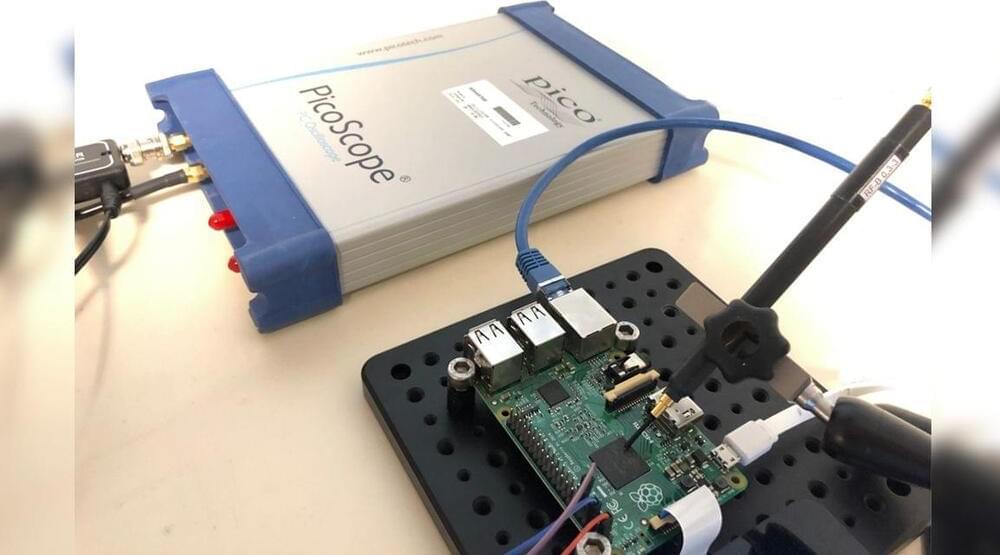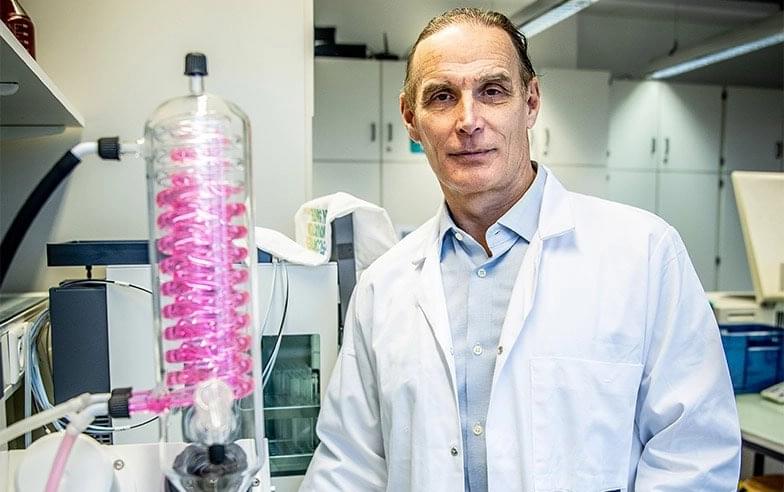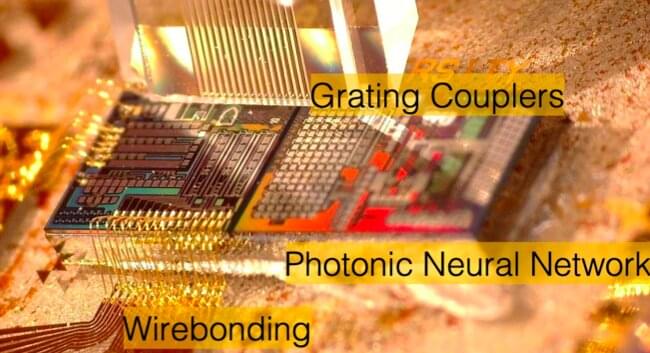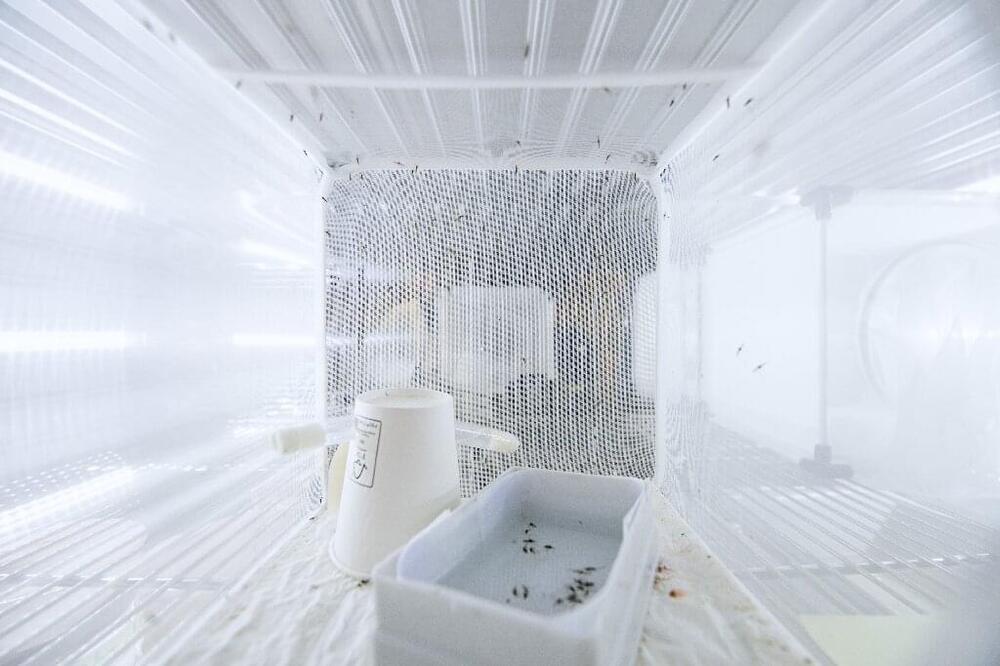Researchers take antivirus support to the next level with the Raspberry Pi.
A team from the Research Institute of Computer Science and Random Systems uses a Raspberry Pi to detect malware with electromagnetic waves.



Over the centuries, we have learned to put information into increasingly durable and useful form, from stone tablets to paper to digital media. Beginning in the 1980s, researchers began theorizing about how to store the information inside a quantum computer, where it is subject to all sorts of atomic-scale errors. By the 1990s they had found a few methods, but these methods fell short of their rivals from classical (regular) computers, which provided an incredible combination of reliability and efficiency.
Now, in a preprint posted on November 5, Pavel Panteleev and Gleb Kalachev of Moscow State University have shown that — at least, in theory — quantum information can be protected from errors just as well as classical information can. They did it by combining two exceptionally compatible classical methods and inventing new techniques to prove their properties.
“It’s a huge achievement by Pavel and Gleb,” said Jens Eberhardt of the University of Wuppertal in Germany.
TABLE OF CONTENTS —————
0:00–21:02 : Introduction (Meaning of Life)
21:03–46:14 CHAPTER 1: Transhumanism and Life Extension.
TWITTER https://twitter.com/Transhumanian.
PATREON https://www.patreon.com/transhumania.
BITCOIN 14ZMLNppEdZCN4bu8FB1BwDaxbWteQKs8i.
ETHEREUM 0x1f89b261562C8D4C14aA01590EB42b2378572164
LITECOIN LdB94n8sTUXBto5ZKt82YhEsEmxomFGz3j.
#1 ) THE GENETIC PATHWAY
46:15–58:52 CHAPTER 2 : Biological Aging a. “Programmed Cell Death” Theory of Aging b. “Intercellular Competition” Theory of Aging c. “Antagonistic Pleiotropy” Theory of Aging.
#2 ) THE CYBERNETIC PATHWAY
58:53–1:12:26 CHAPTER 3 : Cyborgs.

The company is developing novel therapeutics targeting aging in humans and dogs by using genetically modified adeno-associated virus (AAV) vectors to deliver copies of the SIRT6 gene variant found in centenarians. SIRT6 has already been shown to have significant capabilities to repair DNA damage, and Genflow’s aim is to show that it can also improve healthspan and, potentially, increase lifespan. “Our business model is to develop our lead compound, GF-1002, that has already yielded encouraging pre-clinical results,” Leire told us. “We are currently undertaking pre-clinical trials which are expected to take approximately two years.
SIRT6 targeting longevity biotech announces intention to float on the London Stock Exchange, with IPO later this month.

The world we experience is governed by classical physics. How we move, where we are, and how fast we’re going are all determined by the classical assumption that we can only exist in one place at any one moment in time.
But in the quantum world, the behavior of individual atoms is governed by the eerie principle that a particle’s location is a probability. An atom, for instance, has a certain chance of being in one location and another chance of being at another location, at the same exact time.
When particles interact, purely as a consequence of these quantum effects, a host of odd phenomena should ensue. But observing such purely quantum mechanical behavior of interacting particles amid the overwhelming noise of the classical world is a tricky undertaking.

We are currently witnessing an explosion of network traffic. Numerous emerging services and applications, such as cloud services, video streaming platforms and the Internet of Things (IOT), are further increasing the demand for high-capacity communications. Optical communication systems, technologies that transfer information optically using fibers, are the backbone of today’s communication networks of fixed-line, wireless infrastructure and data centers.
Over the past decade, the growth of the internet was enabled by a technique known as digital signal processing (DSP), which can help to reduce transmission distortions. However, DSP is currently implemented using CMOS integrated circuits (ICs), thus it relies heavily on Moore’s Law, which has approached its limits in terms of power dissipation, density and feasible engineering solutions.
As a result, distortions caused by a phenomenon known as fiber nonlinearity cannot be compensated by DSP, as this would require too much computation power and resources. Fiber nonlinearities remain the major limiting effect on long-distance transmission systems.

Cages meshed over with women’s tights and crawling with mosquitoes are stashed in a Swedish laboratory. Every day, researchers feed them beetroot juice laced with deadly toxins, part of a grand plan designed to fight malaria.
With hopes of field trials delayed repeatedly by the COVID-19 pandemic, researchers in Sweden still believe they have found the secret to a new environmentally friendly way of killing off the Anopheles species of mosquitoes that transmit malaria.
So hopeful are they, they have founded a company with a view to turning their discovery into a commercially viable alternative to the pesticides currently used to kill mosquitoes, but which can also harm humans and the environment.
In a groundbreaking new study, researchers at the University of Minnesota Twin Cities used a customized printer to fully 3D print a flexible organic light-emitting diode (OLED) display. The discovery could result in low-cost OLED displays in the future that could be widely produced using 3D printers by anyone at home, instead of by technicians in expensive microfabrication facilities.
The research is published in Science Advances.
The OLED display technology is based on the conversion of electricity into light using an organic material layer. OLEDs function as high quality digital displays, which can be made flexible and used in both large-scale devices such as television screens and monitors as well as handheld electronics such as smartphones. OLED displays have gained popularity because they are lightweight, power-efficient, thin and flexible, and offer a wide viewing angle and high contrast ratio.

Technology is increasingly moving towards miniaturization and energy efficiency. This also applies to electronic chips. Light, and optics more broadly, are functional in making compact and portable chips. Researchers from the Photonic Systems Laboratory, headed by Professor Camille Brès, have successfully applied a novel principle for introducing second-order optical nonlinearity into silicon nitride chips. A first reported in the journal Nature Photonics.